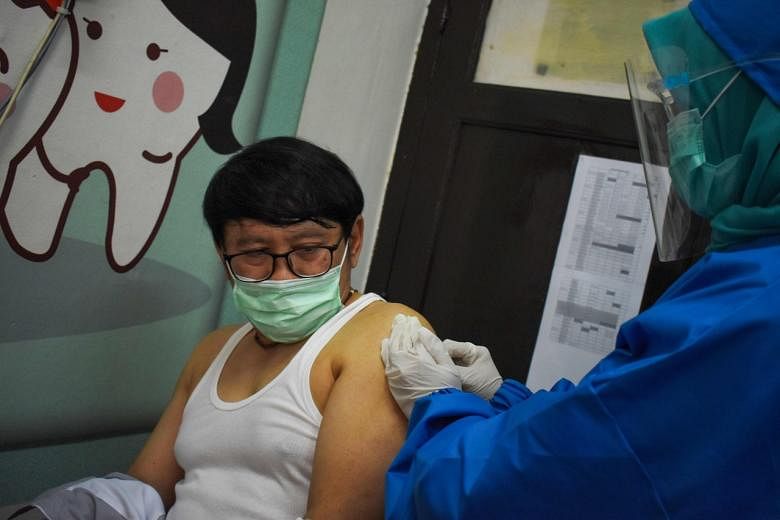JAKARTA - Medical experts have criticised the unsolicited involvement of Indonesia's Intelligence Unit (BIN) and Army in efforts to find a cure for Covid-19, saying the associated clinical trials breached international protocols.
This came after army chief General Andika Perkasa announced on Saturday(Aug 15) that Indonesia was gearing up to produce drugs to fight the coronavirus and he expected BPOM, the Indonesian equivalent of US Food and Drug Administration, to authorise three combinations of existing drugs that he claimed could cure Covid-19.
BIN's secretary, General Bambang Sunarwibowo, told MetroTV on Tuesday (Aug 18) night that his agency started the endeavour in March - roping in researchers at Airlangga University - out of concerns caused by the high fatality rate and fast spread of the virus in Indonesia and that BIN was funding the project.
Responding to doctors who were perplexed by the involvement of an intelligence agency in a medical endeavour, General Bambang said: "We initiated it. BIN is part of the government. The research was conducted by Airlangga University, which is working with BIN, the army and several hospitals."
Airlangga University and BIN first announced they discovered five combinations of drugs to fight Covid-19 in June. In the ensuing clinical trials, they applied three of these five combinations. The three combinations are Lopinavir/Ritonavir and Azithromycin; Lopinavir/Ritonavir and Doxycycline; Hydrochloroquine and Azithromycin.
In a presentation report about its clinical trial, the University of Airlangga said the drugs under trial showed their efficacy after three to seven days of administering, stressing that assessment of kidney, liver and heart function later proved to be normal.
The trials were conducted between July 7 and Aug 4. Of the 1,127 subjects who participated in the initial stage, 754 qualified after meeting the inclusion criteria, according to the 16-page report seen by The Straits Times.
Researchers have to specify inclusion and exclusion criteria for participation in every clinical trial, factoring in the participants' age, sex, and previous medical history.
Antara, the state news agency, reported on Tuesday that Dr Pandu Riono, who teaches at the University of Indonesia's medical school, took issue with the consortium's failure to submit the report of its clinical trial to the World Health Organisation International Clinical Trials Registry Platform, so it could be accessed for transparency by academics and researchers worldwide.
In response, BIN's General Bambang said they did not intend to conceal anything and that inputs and criticism from others are, in fact, very good.
"It is important to think positively, so Indonesia would really have an anti-Covid-19 drug. This would address all the problems we are facing," he said.
He added the process was monitored by BPOM but not every step of it was disclosed to the public.
The WHO's registry platform serves to ensure a complete view of research is accessible to all those involved in healthcare decision making.
"This will improve research transparency and will ultimately strengthen the validity and value of the scientific evidence base," according to WHO.
Registration on the platform requires documenting the objectives, design and methodology of a trial, as well as providing background and rationale.
Trial participants must be randomly selected and represent various groups to reduce bias.
The volunteers in the University of Airlangga's trial came from Secapa, the army's officer candidate school.
The school was a 1,300-case coronavirus cluster, involving students, staff and students' relatives.Those infected stayed in a dormitory in Bandung, the country's fifth most populous city. Of the total 1200 students, 991 got infected. Almost all were young men, aged between 20 and 23.
Dr Pandu said including asymptomatic subjects in the trial was a breach of procedure, since asymptomatic cases need rest, vitamin and self-isolation, rather than drugs.
Prof Zubairi Djoerban, head of the Indonesian Doctors Association's coronavirus task force, said on MetroTV on Tuesday night that the University of Airlangga should have sought peer reviews on its study first before any announcement to the public.
In an apparent move to preempt public confusion, the National Covid-19 task force issued a statement late Tuesday night, citing Prof Ali Ghufron Mukti, head of the government's Covid-19 research and innovation consortium, who said: "Up to now, there is no specific drug that cures Covid-19."












